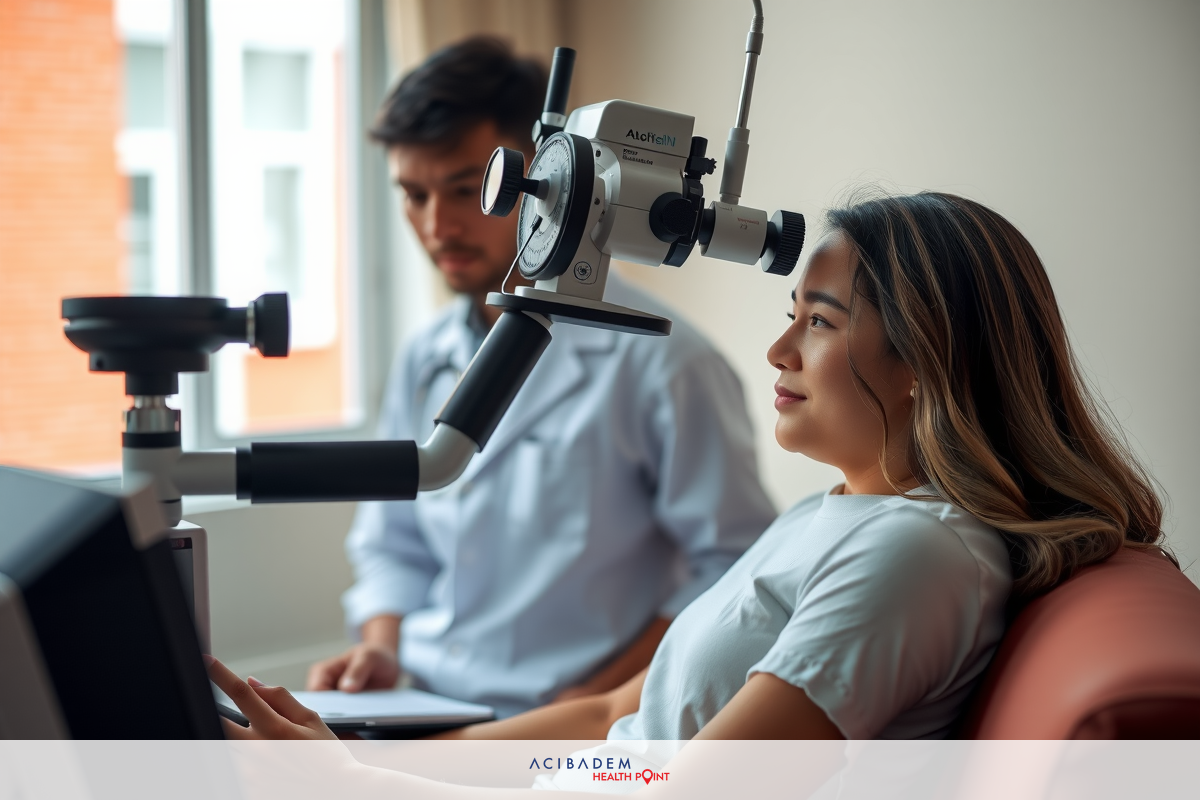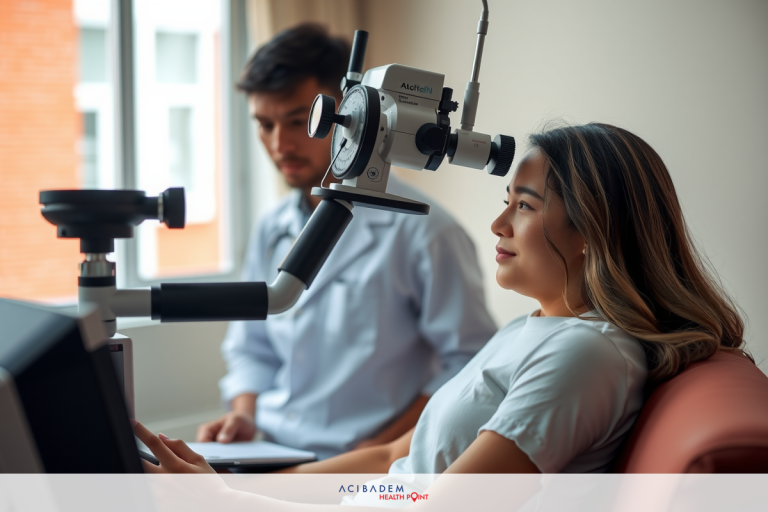What Kind of Eye are Eligible for LASIK
What Kind of Eye are Eligible for LASIK LASIK, a popular form of refractive eye surgery, brings the promise of clear vision without the use of glasses or contact lenses. As exciting as this prospect may be, it’s crucial to understand that not all eyes are suitable candidates for this treatment. Various factors such as age, overall health and certain eye conditions can greatly affect one’s eligibility.
Moving forward on the path towards potential LASIK treatment involves understanding these key determinants. An individual’s specific eye condition plays a pivotal role in determining suitability; common issues like myopia (short-sightedness), hypermetropia (long-sightedness), and astigmatism could influence decisions about proceeding with LASIK. It is also vital to remember that consultation with an ophthalmologist remains indispensable in making an informed decision about candidacy for LASIK surgery.
What Kind of Eye are Eligible for LASIK Common Eye Conditions
LASIK surgery has revolutionized the field of vision correction, but it’s not a one-size-fits-all solution. A spectrum of eye conditions can influence eligibility for this procedure, and understanding these is crucial to making an informed decision about candidacy. Myopia or nearsightedness, hypermetropia or farsightedness, and astigmatism are common refractive errors often corrected by LASIK.
What Kind of Eye are Eligible for LASIK Myopia occurs when light entering the eye doesn’t focus correctly on the retina, leading to blurry distance vision. It commonly stems from an overly long eyeball or steep cornea curvature—factors that determine suitability for LASIK surgery. Hypermetropia presents as difficulty focusing on nearby objects due to a shorter-than-average eyeball or flat cornea; however, those with mild cases may still be eligible for LASIK.
Astigmatism results from irregularities in the shape of your cornea—they’re more oval than round—and can blur both near and far vision. Your surgeon will consider the extent and direction of your astigmatism when evaluating you for LASIK treatment: while minor cases might be efficiently managed through surgery, severe ones could pose challenges.
Presbyopia—a condition linked with age where eyes struggle to focus on close-up objects—is another factor considered during evaluations. Unfortunately, its progressive nature often makes individuals with presbyopia unsuitable candidates for LASIK treatments offering only temporary relief before symptoms re-emerge.
Overall health also plays into determining one’s candidacy for LASIK surgery—even if their specific eye condition falls within treatable parameters—an individual battling autoimmune diseases like rheumatoid arthritis might face increased risks post-surgery thus impacting their suitability.
Lastly remember that each person’s case is unique—your ophthalmologist should conduct comprehensive assessments before greenlighting any corrective procedures such as LASIK—to ensure optimized results minimizing potential complications.
Determining Suitability
While it’s true that LASIK has gifted many with the joy of clear vision, we must remember that this surgery isn’t a universal solution for all eye conditions. A multitude of factors come into play when assessing suitability for LASIK, extending beyond refractive errors alone. These range from your overall eye health to lifestyle considerations and even personal preferences.
- Eye Health: Your general eye health is critical in determining eligibility. Conditions such as corneal diseases, dry eyes or any other infections can complicate the procedure and affect its success rate.

The image depicts a medical setting with two people. One person is seated on the right, possibly a patient, waiting for an examination. The other person is standing on the left, possibly a healthcare professional, operating a medical device that includes a headrest and what appears to be an eyepiece or optical instrument. - Refractive Stability: Candidates should have stable prescriptions—meaning their eyeglass or contact lens prescription hasn’t changed significantly for at least two years—to ensure lasting results postsurgery.
- Pupil Size: Larger pupils might increase risks associated with night glare after LASIK surgery; hence an assessment of pupil size forms part of the candidacy evaluation process.
- Corneal Thickness: A minimum corneal thickness is required to perform LASIK safely without risking structural stability—the surgeon will measure this before proceeding with treatment plans.
- Age Factor: Although there’s no upper age limit for undergoing LASIK, patients under 18 are generally not considered suitable candidates due to potential changes in prescription as they mature into adulthood.
- Lifestyle Considerations: People engaged in professions or recreational activities where physical contact is common may wish to reconsider opting for surgical options like LASIK due to potential injury risks.
So while yes, it would be fantastic if everyone could ditch their glasses following a quick procedure—it’s important to understand that each case presents unique challenges requiring individual assessments by experienced professionals ensuring optimized outcomes while prioritizing patient safety above all else!
Consulting Your Eye Doctor
The decision to undergo LASIK surgery should be made after careful consideration and guidance from a seasoned eye doctor. They bring years of expertise and knowledge—critical in assessing your unique situation, evaluating risks, benefits, and alternatives. It’s important to remember that while internet research may provide general insights—it cannot replace the personalized advice an ophthalmologist can provide.
During your consultation, the doctor will meticulously examine your eyes using state-of-the-art diagnostic equipment. This includes mapping out the cornea with computerized tools (corneal topography), measuring its thickness (pachymetry), assessing tear production or dryness levels (Schirmer’s test) among others, all aimed at giving them a comprehensive understanding of your ocular health status. Such evaluations ensure they accurately determine whether you’re suitable for LASIK based on factual medical data rather than generic eligibility criteria.
Beyond these physical examinations—and perhaps just as critical—are discussions about lifestyle needs and expectations post-surgery. What are you hoping to achieve through this procedure? Are there specific activities where you wish for enhanced vision without reliance on glasses or contacts? Your answers help doctors assess if LASIK is indeed the best fit—or if other corrective procedures could offer better solutions tailored to your individual lifestyle requirements.
Lastly, but importantly, consultations also serve as platforms for open dialogue between patient and practitioner encouraging inquiries about procedural details: recovery timescales; potential challenges; success rates etc., all contributing towards making informed decisions about proceeding with treatment plans ensuring optimized results alongside minimized complications.
Frequently Asked Questions
What is the age limit for LASIK surgery?
While there's no upper age limit, most surgeons recommend patients to be at least 18 years old before considering LASIK. This is because eye prescriptions in younger individuals can still change significantly, affecting long-term results.
I have dry eyes. Can I still undergo LASIK?
Chronic dry eye syndrome can indeed affect your candidacy for LASIK as it might exacerbate symptoms post-surgery. However, each case varies and should be discussed with your ophthalmologist who would suggest appropriate treatments or alternatives if needed.
Are the effects of LASIK permanent?
In many cases, yes—LASIK permanently corrects the vision issues it was designed to treat (like myopia). However, as we age our eyes naturally change which may lead some people needing reading glasses down the line even after undergoing successful LASIK surgery.
How soon can I return to work after LASIK?
Most people are able to return to work within a day or two following their procedure. However, recovery times vary among individuals and depend on specific job requirements—your doctor will provide personalized advice based on your situation.








